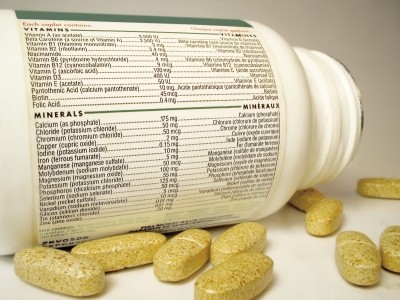Multivitamin supplements may cut cancer risk: JAMA paper

The study has been hailed by representatives of the dietary supplements industry in the US. In response to those who have previously tried to shut the door on the benefits of taking a multivitamin, the new study “pushes the door and the windows wide open to the benefits and safety of multivitamins”, said by Duffy MacKay, ND, vice president, scientific and regulatory affairs for the Council for Responsible Nutrition (CRN).
The Physicians’ Health Study (PHS) II study, published today online ahead of print in JAMA, analyzed data from almost 15,000 male physicians followed for over a decade.
The researchers concluded: “The reduction in total cancer risk in PHS II argues that the broader combination of low-dose vitamins and minerals contained in the PHS II multivitamin, rather than an emphasis on previously tested high-dose vitamins and mineral trials, may be paramount for cancer prevention.
“Although the main reason to take multivitamins is to prevent nutritional deficiency, these data provide support for the potential use of multivitamin supplements in the prevention of cancer in middle-aged and older men.”
Comment
Cara Welch, PhD, Sr VP, scientific & regulatory affairs, Natural Products Association (NPA), told us that the association is encouraged by this study.
“It’s looking at a large population over a number of years, a more appropriate setup for multivitamin research. I think the authors stated it correctly when they said “the main reason to take multivitamins is to prevent nutritional deficiency” but these results offer another potential use,” she said.
CRN’s Dr MacKay added that the study’s findings, “reinforce the value of long-term consistent use of a daily multivitamin as a convenient and affordable insurance policy for good health.
“Whether or not this study can be generalized to the total population is not answered by this study; however, there are other well-researched benefits for the multivitamin in the general population.”
Study details
Led by J. Michael Gaziano, MD, of Brigham and Women’s Hospital and Harvard Medical School, Boston, the researchers analyzed data from 14,641 male US physicians participating in the Physicians’ Health Study (PHS) II. PHS II is the only large-scale, randomized, double-blind, placebo-controlled trial investigating the long-term effects of a common multivitamin in the prevention of chronic disease.
The men were randomly assigned to receive a daily multivitamin or equivalent placebo. Over an average follow-up period of 11.2 years, the researchers documented 2,669 cases of cancer. A total of 2,757 (18.8%) men died during follow-up, said the researchers, including 859 (5.9%) due to cancer.
Data analysis indicated that men taking a multivitamin had a modest but significant 8% reduction in total cancer incidence. While no effects were observed for multivitamin use and prostate cancer, they did observe a significant reduction in the risk of total cancer excluding prostate cancer.
No statistically significant reductions in individual site-specific cancers were observed, including colorectal, lung, and bladder cancer, or in cancer mortality.
Significance
Commenting independently on the study, Prof Balz Frei from the Linus Pauling Institute at Oregon State University said that an 8% drop in overall cancer rates is not small.
“Given that more than 1.6 million new cancer cases are diagnosed in the U.S. each year, this translates into about 130,000 cancers prevented every year, and with it all the health care costs and human suffering," he said.
“Quite simply, at around a penny a day a multivitamin is the cheapest health insurance a person will ever buy,” he added. “Of course it’s just a supplement, and it’s not a substitute for a good diet and healthy lifestyle. But this study should finally answer all the doubters out there who still think multivitamin supplements have no value. And it further confirms they are completely safe to take.”
The study was supported by the National Institutes of Health and an investigator-initiated grant from BASF Corporation. The multivitamins used in the study were provided by BASF Corporation and Pfizer, and study packaging was provided by DSM Nutritional Products.
Source: JAMA
Published online ahead of print, doi:10.1001/jama.2012.14641
“Multivitamins in the Prevention of Cancer in Men - The Physicians’ Health Study II Randomized Controlled Trial”
Authors: J.M. Gaziano, H.D. Sesso, W.G. Christen, V. Bubes, J.P. Smith, J. MacFadyen, M. Schvartz, J.E. Manson, R.J. Glynn, J.E. Buring
















